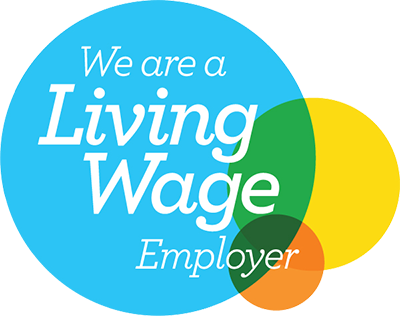

“You make your money when you buy” – is a popular saying amongst investors. It’s also something that applies in the world of business!
Every business wants to stay profitable – and in most cases, this depends heavily on the quality and performance of your suppliers. This isn’t something that just happens – you need a proactive approach and constant monitoring if you’re going to improve supply chain performance.
Here are 11 practical tips to help your business improve procurement and drive better results from your supply chain.
1. Improve Supply Chain Performance – Review Your Contracts
How do you know your suppliers are fulfilling their obligations in terms of price and performance? You review it!
A contract review focuses on analysing your current contracts and agreements with suppliers – and looking at these regularly is the best way to ensure you’re getting the best value. It’s also a chance to see what agreement you actually have in place (and getting an agreement in writing if you don’t!).
Reviewing contracts gives you a clear overview over where you stand – and it’s not uncommon to achieve substantial cost reductions by simply reviewing and challenging supplier price structures.
2. Use Competitive Bidding
Over time, suppliers can get too comfortable and complacent – and the service you receive may suffer as a result.
Using competitive bidding in the procurement process helps to minimise the risk of supplier complacency and can improve supply chain performance. It encourages competition and motivates suppliers to come up with creative and innovative ideas, driving cost reductions and product improvements.
3. Optimise Supplier Relationships
Consistently monitoring and developing supplier relationships delivers huge benefits.
In practice, optimising these relationships is about continuous improvement. Both parties should have a clear and mutually agreed objectives and targets, such as lead time compression, price reduction, cost optimisation and quality improvement.
Supplier relationships should be anchored around the effective exchange of ideas and information.
4. Involve Your Supply Chain Early
Suppliers are experts in what they do, and are often the best source of information.
Procurement is ideally placed to access this information and use it to inform the sourcing process – especially when looking for new products. Early suppler involvement (ESI) is about using supplier expertise and knowledge to avoid over-specification, drive supply chain efficiencies, enable innovation, and deliver value.
5. Rate Your Suppliers
Improving supply chain performance depends on effective monitoring- without formal assessment and evaluation, it is difficult to establish if suppliers are meeting your objectives.
Implementing rating systems minimises or eliminates supplier risk and wider reputational damage to the business. It also helps to drive better performance from suppliers by clearly communicating the key performance indicators and relationship objectives.
6. Conduct Regular Value Analysis To Improve Supply Chain Performance
A ‘best value’ product or service is one that effectively fulfils its specification and business requirements at the lowest possible cost.
Value Analysis reviews all product components to establish if it can be replaced by lower cost alternatives. As Value Analysis is concerned with bought-in materials, it is important that suppliers are engaged so they can propose alternatives and value adding ideas.
7. Negotiate Effectively
Fail to plan and prepare to fail really does apply in negotiations!
Always be clear on what you want to achieve, and do not focus entirely on price but also on value and business needs.
It is vitally important to have a BATNA (best alternative to a negotiated agreement). Having a Plan B or an alternative, means you do not always have to accept what is on offer.
8. Benchmarking to Improve Supply Chain Performance
How do your suppliers stack up?
Supplier benchmarking usually focuses on assessing and analysing supplier performance, and can often yield results that will transform supplier performance. The key focus of a benchmarking exercise should not only be to identify performance gaps, but to understand why these gaps are occurring.
Once you understand this, you can look to implement corrective actions with the supplier.
9. Resolve Disputes Early
Disputes are an inherent part of every buyer-supplier relationship. They’re inevitable, but it’s how you resolve them that matters – and this can make all the difference, especially with strategic suppliers.
In every case, it’s best to deal with disputes early. This prevents it from escalating further. Letting arguments and disputes escalate can risk permanently damaging the relationship and stifling supplier innovation.
10. Share Information Effectively
Every successful sourcing strategy relies on effective sharing of information between procurement and the supply base.
Organisations that share information with their key strategic suppliers usually obtain lower costs and prices. Information such as product quality, delivery schedules, lead times, capacity and capability should be shared with suppliers to drive continual improvement and cost optimisation.
11. Use the Right Technology
Technology can greatly enhance how procurement interacts and manages the supply base.
Using the right procurement tech enables the identification of compliant suppliers that can help the buying organisation meets its objectives. It can also be used to bring visibility to complex supply chains, and to facilitate collaboration with key strategic suppliers to accelerate agility, reliability, and efficiency.
Improve Supply Chain Performance – Procurement Support from Gateway Procurement
At Gateway Procurement, we help businesses and organisations across the UK to obtain best value through procurement.
If you want to improve supply chain performance (or supply chain sustainability), or need specialist advice on any aspect of effective procurement, our team of experts is here to help. Get in touch with Gateway Procurement today on 01482645844, or by emailing daniel@gatewayprocurement.co.uk.








